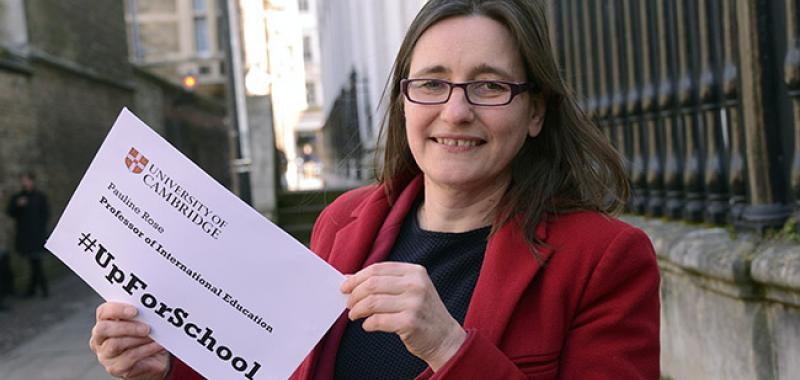
IDEAS and the LUMS Ed Initiative Present
Teaching, Learning and Disadvantage: Methodological Approaches and Challenges
Professor Pauline Rose, International Education
Director, Research for Equitable Access and Learning (REAL) Centre, Faculty of Education, University of Cambridge
Date: Thursday 24th November 2016
Time: 3.00pm – 4.00pm
Venue: SSE 302 (third floor)
Despite having made progress over the past decade in getting more children into school, Pakistan’s education system faces considerable challenges; including a high number of children still out of school, low levels of learning, and high levels of inequality. Like in many other low income countries, there is an immediate need for devising strategies to tackle disadvantages in Pakistan; focused on teacher effectiveness with respect to improving learning for all children, including those from poor backgrounds, girls and children with disabilities.
The overarching objective of our research – Teaching Effectively All Children (TEACh) – is to identify types of effective teaching practices that can best serve to raise learning outcomes for children who face multiple disadvantages related to disability, poverty, gender and other markers of disadvantage such as caste, religion and location. This seminar will outline the methodological approaches adopted in this research and discuss the challenges in designing and implementing methods and tools for understanding the links between teaching, learning and disadvantage.
Pauline Rose is a Professor of International Education, and the Director of the Research for Equitable Access and Learning Centre at the University of Cambridge. Previously, she directed two Education for All Global Monitoring Reports, on youth, skills and work (2012) and on teaching and learning (2014). Pauline has trained as an economist, with extensive experience in development studies, rigorous quantitative and qualitative research skills, a deep knowledge of key educational issues of relevance to policy and practice, as well as direct experience of working on large-scale collaborative research projects and of providing evidence-based advice to policymakers.










